Service
Implementing "Standard operating procedures" (SOPs) to healthcare institutions
Based on my extensive experience, I am well-positioned to control, check, modify, and evaluate Standard Operating Procedures (SOPs) in healthcare institutions.
My deep understanding of healthcare protocols and procedures, combined with a thorough awareness of regulatory requirements and patient safety standards, equips me to ensure that SOPs are not only adhered to but also continuously improved.
This expertise makes me an ideal candidate to oversee SOP management, ensuring they meet the highest standards of care and efficiency necessary for top-tier healthcare delivery.

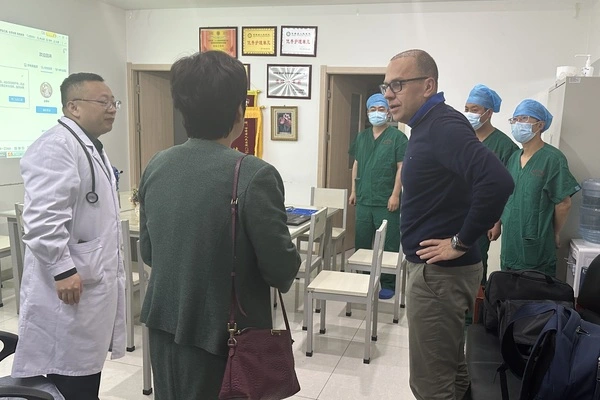
Service
Implementing "Standard operating procedures" (SOPs) to healthcare institutions
Based on my extensive experience, I am well-positioned to control, check, modify, and evaluate Standard Operating Procedures (SOPs) in healthcare institutions.
My deep understanding of healthcare protocols and procedures, combined with a thorough awareness of regulatory requirements and patient safety standards, equips me to ensure that SOPs are not only adhered to but also continuously improved.
This expertise makes me an ideal candidate to oversee SOP management, ensuring they meet the highest standards of care and efficiency necessary for top-tier healthcare delivery.

Why are they important?
What are SOPs?
Standard Operating Procedures (SOPs) are crucial in medicine for several key reasons, ensuring consistency, safety, and quality of care across various healthcare settings:
Why are they important?
What are SOPs?
Standard Operating Procedures (SOPs) are crucial in medicine for several key reasons, ensuring consistency, safety, and quality of care across various healthcare settings:
Consistency and Reliability
Provide a consistent method for performing tasks and procedures, which is critical in a field where discrepancies can lead to significant patient harm. By having a standardized approach, all medical staff can perform their duties in a reliable and expected manner, which can be particularly vital in environments like emergency rooms or intensive care units, where rapid decision-making is required.
Quality Control
SOPs help maintain high standards of care. They serve as benchmarks against which performance is measured and maintained. This is essential for tasks ranging from the administration of medication to the performance of complex surgeries, ensuring that every step meets predefined quality standards.
Training and Education
SOPs are invaluable for training new staff and for ongoing education of existing staff. They provide clear, concise instructions on how to perform procedures correctly, which is essential for onboarding new employees and for ensuring that all staff are updated on the latest best practices.
Enhancing Patient Safety
By minimizing the variability in how medical procedures are performed, SOPs reduce the risk of errors. This is critical in medicine, where mistakes can have severe consequences. SOPs ensure that all healthcare providers follow the same procedures to mitigate risks and enhance patient safety.
Regulatory Compliance
In healthcare, compliance with regulatory standards is non-negotiable. SOPs help ensure that medical practices comply with national and international laws and guidelines, including those related to patient privacy, treatment protocols, and pharmaceutical regulations.
Efficiency and Time Management
Well-defined SOPs streamline processes, reducing the time it takes to complete them and freeing up staff to focus on other important tasks. This increased efficiency can lead to better patient throughput and reduced wait times, ultimately improving patient satisfaction.
Risk Management
SOPs play a significant role in risk management by detailing the appropriate steps to handle medical equipment, manage patient data, and respond to emergencies. This systematic approach helps prevent incidents and prepares staff to manage unforeseen situations effectively.
Audit and Evaluation
SOPs make it easier to audit practices and evaluate staff performance. They provide a clear framework for audits to assess adherence to procedures and identify areas for improvement. This is crucial for continuous improvement in healthcare settings.
Facilitating Research and Development
In clinical research, SOPs ensure that studies are conducted consistently, making it easier to compare and validate results. This is essential for developing new treatments and advancing medical knowledge.

Why is this necessary?
8 reasons for the impact of SOPs on the financial efficiency of healthcare facilities.
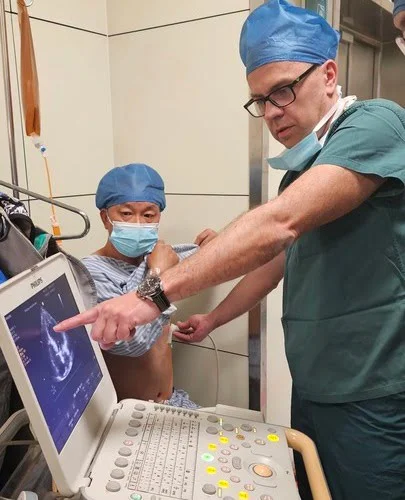
Cost Efficiency
SOPs streamline operations by standardizing processes, which reduces waste and increases efficiency. This can lead to significant cost savings as resources are used more effectively, and redundant or inefficient practices are eliminated.
Resource Management
By providing a clear framework for tasks, SOPs help in better resource allocation and management. This includes optimal use of equipment, supplies, and human resources, ensuring that each component is used efficiently without unnecessary expenditure.
Reduced Error Rates
Errors in healthcare not only impact patient safety but also lead to increased costs associated with corrective procedures, legal issues, and insurance claims. SOPs minimize the likelihood of errors by ensuring that tasks are performed consistently and correctly, thus avoiding these additional costs.
Regulatory Compliance
Non-compliance with health regulations can result in hefty fines and penalties for healthcare institutions. SOPs help ensure that all operations are compliant with regulatory standards, thereby avoiding financial penalties and contributing to the institution's overall financial health.
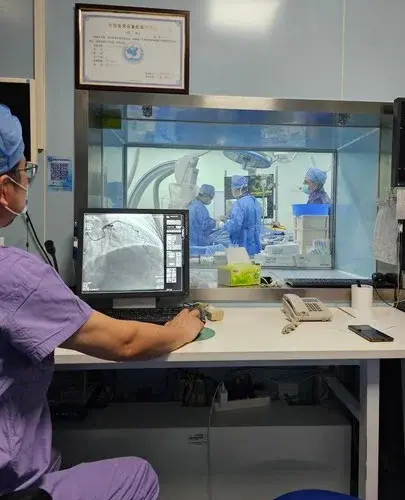

Predictability in Budgeting
When processes are standardized and predictable through SOPs, financial planning becomes more accurate. Institutions can forecast expenses and budget more effectively, avoiding unexpected costs associated with inefficiencies or emergency corrective actions.
Time Savings
SOPs reduce the time spent on training new employees and decrease the learning curve through detailed, standardized instructions. This efficiency not only saves money but also allows healthcare providers to allocate more time to patient care, potentially leading to better health outcomes and patient satisfaction, which in turn can enhance the financial performance through improved reputational standing.
Reduced Liability
Properly implemented SOPs can reduce the risk of incidents that lead to lawsuits and liability claims. By maintaining high standards of care and documenting compliance through SOPs, healthcare institutions can mitigate risks that could otherwise result in financial loss.
Enhanced Patient Outcomes
Effective SOPs contribute to better patient outcomes by ensuring that every procedure adheres to the highest standards of medical care. Improved outcomes can lead to higher patient satisfaction, better patient retention, increased referrals, and enhanced reimbursement from insurers based on quality metrics.
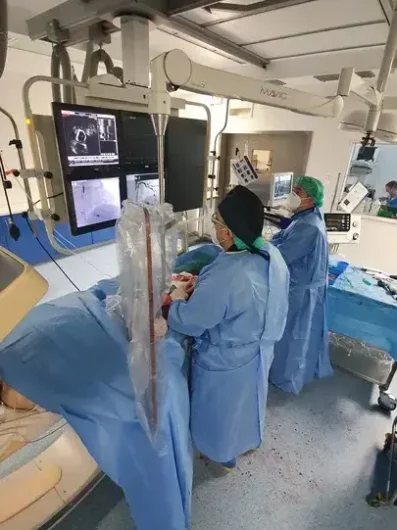
Overall, the implementation and rigorous maintenance of SOPs in healthcare not only support clinical and operational efficiency but also strengthen financial stability and performance, making them an indispensable tool in the management of any healthcare institution.
In summary, SOPs are foundational to the operational integrity of healthcare institutions, ensuring that medical practices are not only effective but also safe, consistent, and compliant with legal and ethical standards. They are key to managing complex healthcare systems and improving overall patient outcomes.
FAQ
Frequently asked questions about Standard Operating Procedures (SOPs)
What are Standard Operating Procedures (SOPs)?
Standard Operating Procedures (SOPs) are official, documented instructions that describe the sequence of actions or processes in medical institutions. They regulate staff operations and help ensure high-quality, safe, and efficient healthcare services.
What are the objectives of implementing SOPs in healthcare facilities?
- Ensuring a uniform standard of medical care and clinical process management.
- Enhancing patient safety by minimising the risk of errors and complications.
- Optimising workflow processes, reducing inefficiencies, and improving staff efficiency.
- Meeting regulatory requirements and aligning with international standards (ISO, JCI, WHO, etc.).
- Improving staff training, which is particularly crucial for new employees or when adopting new treatment methods.
What is the process of SOP Implementation?
1. Needs Assessment and Regulatory Compliance
- Identifying processes requiring standardisation (e.g., surgical procedures, infection control, medication management).
- Considering national and international regulatory requirements.
2. Development and Documentation of SOPs
- Clearly defining each step of the process.
- Assigning responsible personnel and establishing performance assessment criteria.
3. Staff Training
- Introducing medical staff to new procedures.
- Conducting training sessions and evaluating knowledge retention.
4. Testing and Pilot Implementation
- Assessing SOP effectiveness in real-life conditions.
- Making necessary adjustments before full-scale adoption.
5. Full Implementation and Compliance Monitoring
- Regular monitoring of SOP adherence.
- Updating procedures based on new medical advancements and regulatory changes.
What are the benefits of Implementing SOPs?
- Improved quality and safety of medical services.
- Increased transparency and accountability in staff operations.
- Reduced time spent on routine tasks.
- Compliance with modern healthcare standards and accreditation requirements.
The implementation of SOPs in healthcare institutions is a crucial factor in ensuring continuous improvement in medical care and operational efficiency.
What are some examples of SOPs in healthcare facilities?
- Infection Control (hand hygiene, disinfection protocols)
- Emergency Response (cardiopulmonary resuscitation guidelines).
- Surgical Procedures (operating theatre preparation, sterilisation of instruments).
- Medication Management (storage, distribution, and monitoring of drugs).
- Documentation and Records (electronic medical records, discharge procedures).
